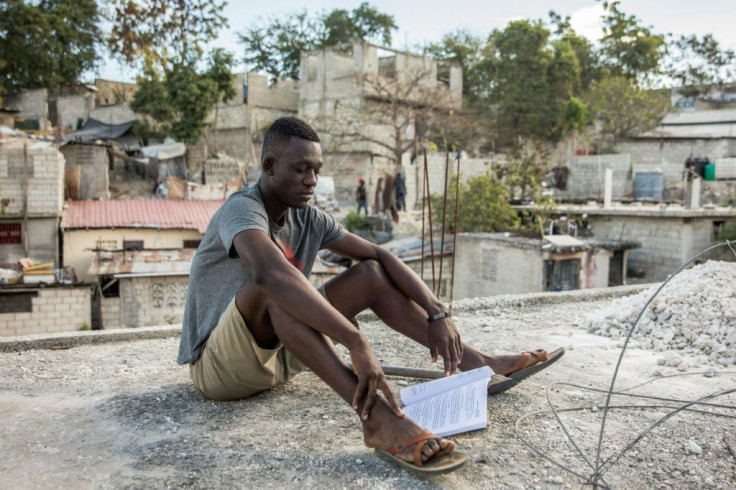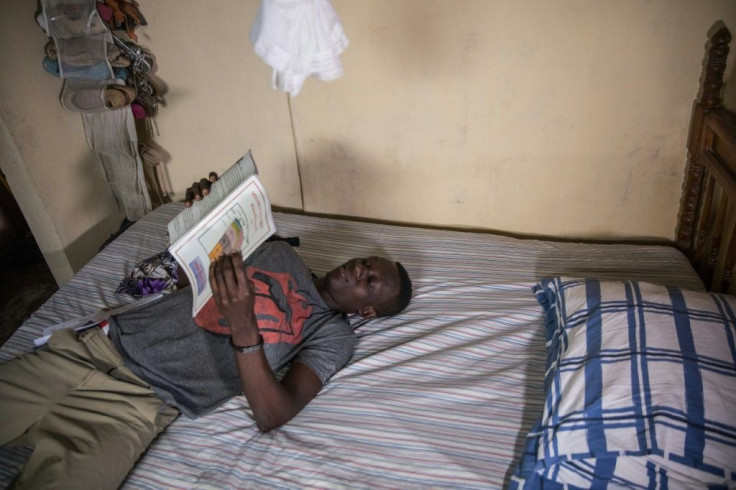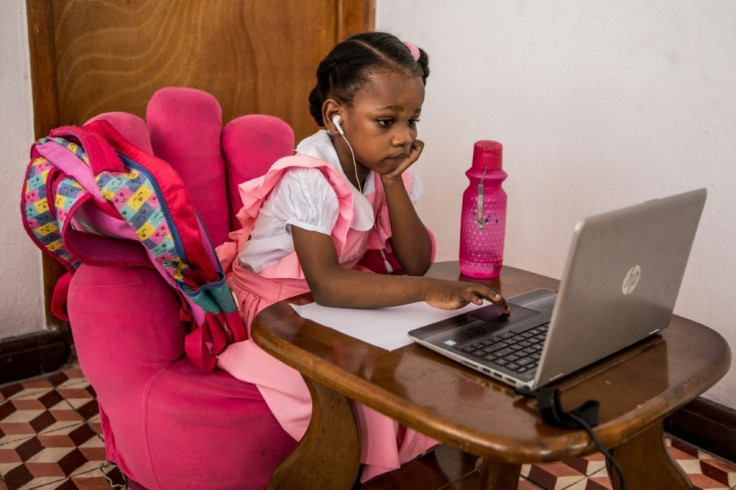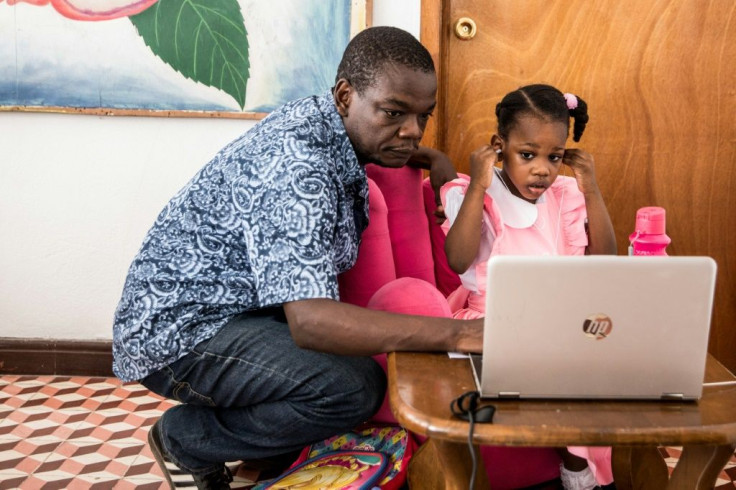Political Crisis Adds To Heavy Burden On Haiti's Youth
The political crisis paralyzing Haiti has not only hampered young people's schooling and compromised their future, it has aggravated existing challenges that have forced many to grow up far too fast.
Sitting on the roof of a house his uncle is building, 20-year-old Kervens Casseus balances his geology book on a broken cinder block he uses as a makeshift desk.
"The opposition and the ruling authorities: they're the ones destroying the country," says Casseus, who has not been in class once this month.
A high school senior pursuing science studies, he has received neither homework nor any instruction from his teachers.

The school calendar is in such flux that he has no idea when the all-important Baccalaureate exams will be given.
In a country where deep economic inequality and the rise of violent street gangs cast further shadows, the young are being deprived of their childhood, parents say.
Casseus is a pupil in the county's seriously underfunded public schools. Eighty percent of Haiti's schools are private.

At an age when he should be savoring life to its fullest, Casseus sits, listless and immobilized, in the heart of the Haitian capital.
"I'm afraid," admits the slender young man, who for three years has shared a modest apartment with his aunt, since his parents live outside the capital city of Port-au-Prince.
"It was just this morning, when I came out looking for you, that I went out on the main street for the first time in the entire month of February," he tells an AFP reporter.
"And it felt strange."
He says the street has been unusually quiet since February 7, a date that marked what he called a "dramatic change."

That was when the political opposition and some civil society groups said they would no longer recognize Jovenel Moise as the nation's legitimate president -- kicking off weeks of violent street protests.
Amid an extended dispute over alleged election fraud, Moise has insisted that his term runs until February 7, 2022.
Haiti has largely been spared the worst of the Covid pandemic, so when the political crisis flared this month, students were attending school.

But since then most educational establishments in the capital have been closed, since remaining open is seen as a vote of confidence for Moise.
"Children have to go to school, but if you say that today in Haiti, some people will put you in a political category," says one teacher who, fearing reprisals, insisted on speaking anonymously.
The political crisis has aggravated the profound economic inequality affecting Haiti and its schools.
Casseus, left to navigate his own education, has difficulty even paying for his cellphone service.
Meanwhile, barely a mile away, five-year-old Lucie is ensconced in a big pink armchair and attentively following her teacher's online lecture.
Sitting before her computer, she wears the uniform of her church-run school.
"I don't think every Haitian parent has computer equipment at home and a reliable internet connection, not to mention the problem of electricity," says her father, Jean Romuald Ernest, acknowledging his own good fortune.
"Last week, the teacher had to stop class when her laptop ran out of charge," says the 47-year-old father of three -- two of whom are now back in school.
As a doctor married to an accountant, Ernest and his wife are in the minority in a country where 60 percent of people survive on less than $2 a day.
But that doesn't mean his family is spared the consequences of the crisis.
"We don't have children anymore" in Haiti, Ernest says. "We have small adults."
"A child who sees burning tires on the side of the road, or a person who has been shot, and asks you, 'Papa, what is that? Why did it happen?' And this child hears gunshots nearby, he is stressed," Ernest says.
Any suggestion that the polarized political scene does not affect Haitians' daily lives makes him crazy.
"I was stunned to discover that my oldest daughter, at 11, already has white hair!" the doctor says. "That's how bad the stress is."
With political uncertainty coming on top of the proliferation of armed gangs blamed for a surge of kidnappings, anxiety has become Haitians' daily lot.
The nation's media are replete with stories of the tragedies that sometimes befall Haitians attempting to flee to the American continent, but young Casseus said he understands what is driving them.
"We have our dreams, but with the crisis in the country we can't achieve them," he says.
"That's why you see most young people trying to leave the country."
© Copyright AFP 2024. All rights reserved.




















